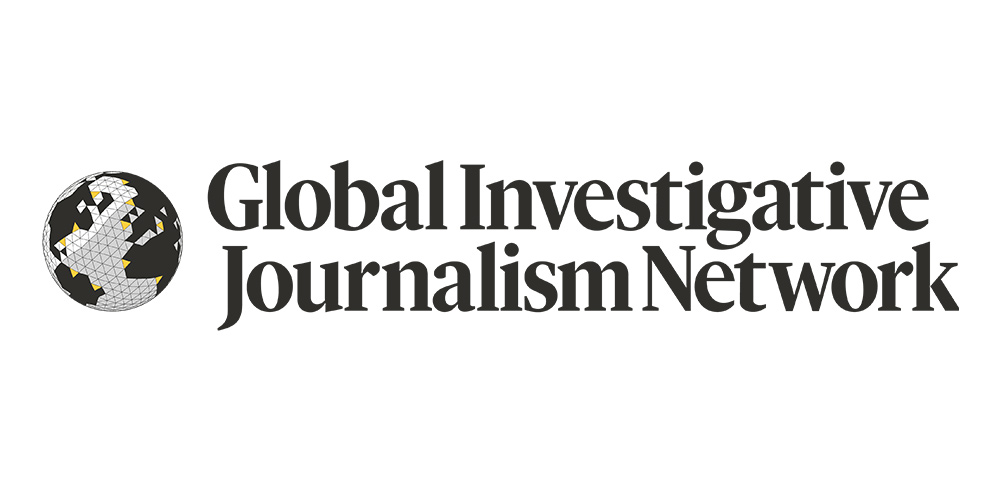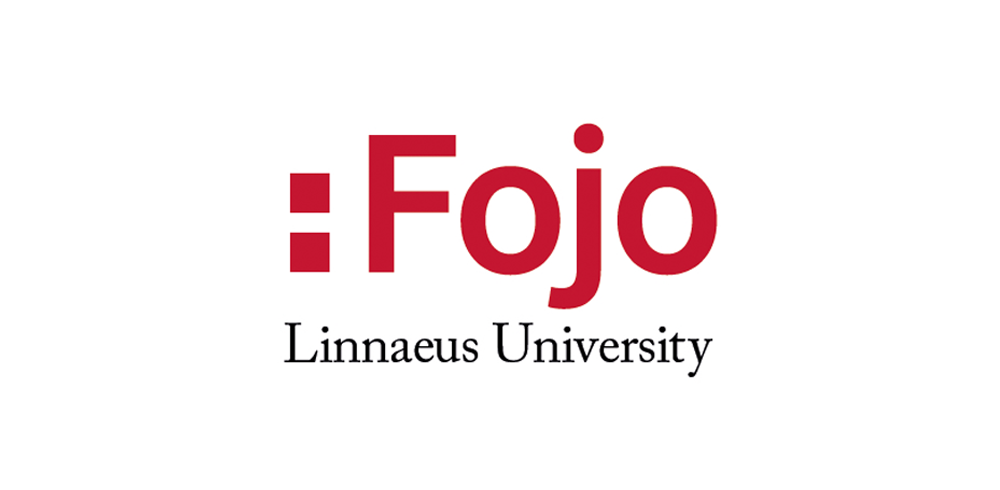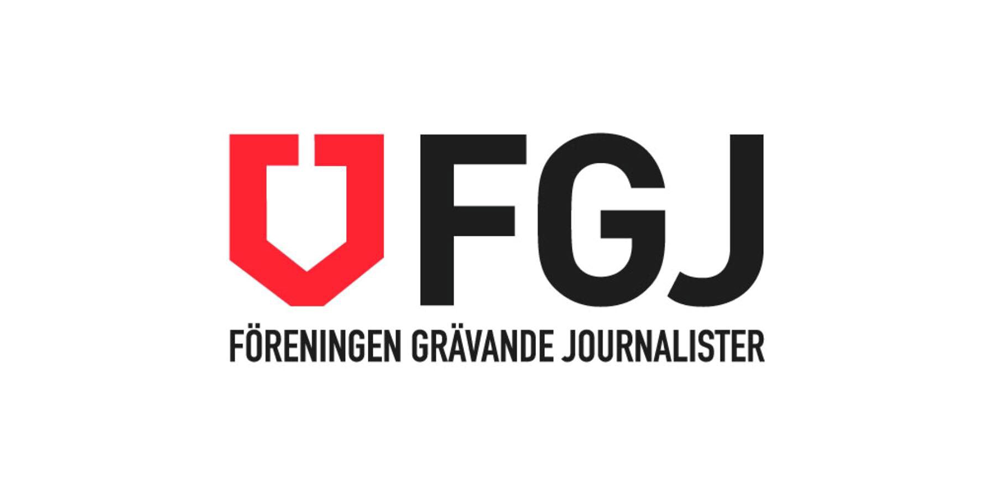Competition for the 2023 Global Shining Light Award (#GSLA23) is now CLOSED. The deadline to apply for the Global Shining Light Award was February 28, 2023. The winners will be announced at the Global Investigative Journalism Conference in Gothenburg, Sweden, in September 2023.
To learn about future GIJN opportunities, be sure to subscribe to GIJN’s fortnightly newsletter.
Every two years, the Global Investigative Journalism Network presents the Global Shining Light Award, a unique award which honors investigative journalism in a developing or transitioning country, done under threat, duress, or in the direst of conditions. After a pause during the pandemic, we are pleased to bring back the award, which will cover the period from January 1, 2021 through December 31, 2022.
There are two award categories: Small & Medium Outlets (organizations with staff of 20 or less, including freelancers); and Large Outlets (organizations with more than 20 staff). Top winners will receive an honorary plaque, US$2,500, and a trip to the Global Investigative Journalism Conference to accept the award in front of hundreds of their colleagues from around the world.
Due to the high volume of applications, we ask that you send us online links to your work samples. If your sample is not available as a public link, you can easily upload your document to a platform such as Google Drive or Dropbox, and share the link with shininglightaward@gijn.org. If you run into any problems, send us an email. If submissions are in languages other than English, you must provide a detailed English-language summary of a print or online story, or an English-language transcript of a broadcast script.
Competition is keen. In 2019, the awards drew a record 291 submissions. From 12 extraordinary finalists, the judges gave out three awards and two citations of excellence. Submissions deadline: February 28, 2023.
Background
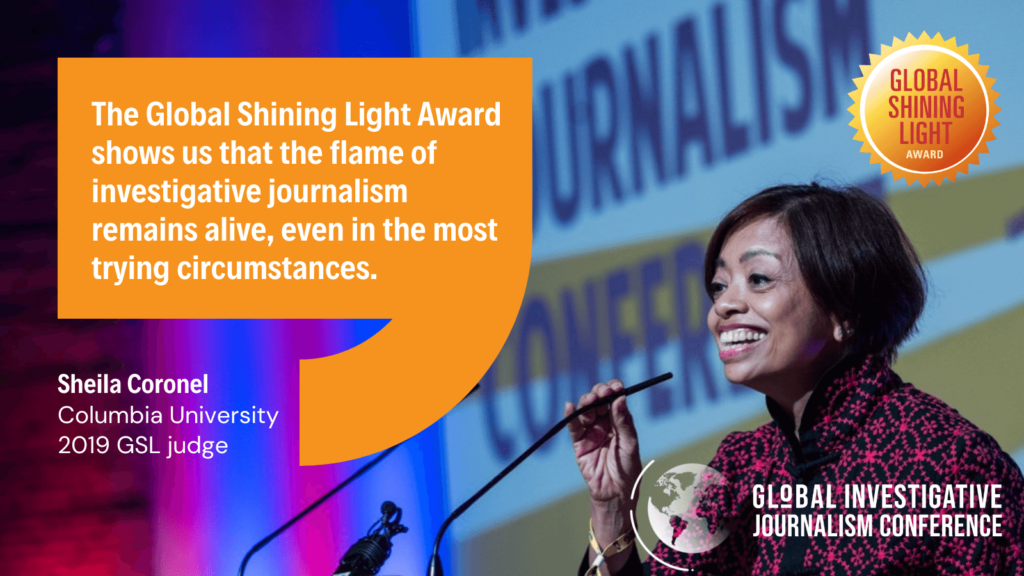
Each year dozens of journalists and media workers are killed – and hundreds more are attacked, imprisoned or threatened – just for doing their job. Many of these violations of free expression occur in developing or emerging countries, and quite often during military conflicts. There are a number of international awards recognizing such attacks on freedom of expression.
But there is another clear trend that emerges in analyses of global attacks on reporters and the media. More journalists are being killed, and media outlets attacked, because they are carrying out important efforts in investigative journalism – exposing uncomfortable truths, shining light on systematic corruption, and providing accountability in societies yearning for democracy and development. There are more journalists killed each year covering corruption and politics as are killed covering wars, according to the Committee to Protect Journalists.
The attacks on watchdog journalists, moreover, are increasingly aimed not at murdering them but at intimidating, frightening, and harassing them. Through lawsuits, false arrests, imprisonment, exile, and more, the world’s autocrats and oligarchs are staging a sustained, global attack on independent media. As Zaffar Abbas, editor of Pakistan’s Dawn noted, “They are no longer trying to kill journalists. They are trying to kill journalism.”
Despite these challenges, investigative journalists are not backing down, and we at GIJN are pleased to recognize this through the Global Shining Light Award. On behalf of our extraordinary global community, we celebrate these courageous reporters and their work. Read more about the previous winners and their remarkable investigative stories below.
Criteria
The journalist, journalism team, or media outlet provided independent, investigative reporting, which:
- Originated in and affected a developing or emerging country;
- Was broadcast or published between January 1, 2021 and December 31, 2022;
- Was of an investigative nature;
- Uncovered an issue, wrong-doing, or system of corruption which gravely affected the common good;
- And did so in the face of arrest, imprisonment, violence against them and their families, or threats and intimidation.
Award Categories
- Small and Medium Outlets (organizations with staff of 20 or less, including freelancers)
- Large Outlets (organizations with more than 20 staff)
Judging Process
An international panel of judges, consisting of investigative journalism experts, will decide on the winner. The judges, in their discretion, may select more than one winner to recognize outstanding work.

Previous Winners
2019

Large Outlets (Joint winners)
Murder in Manila
Team: Patricia Evangelista, Carlo Gabuco, Lian Buan, Rambo Talabong, Chay Hofileña. (Rappler, the Philippines)
This series tells the story of President Rodrigo Duterte’s so-called war against drugs, which has claimed the lives of tens of thousands of people since he took office in 2016. Rappler’s six-month investigation showed strong indications that the police were outsourcing extrajudicial killings to a vigilante gang.
#GuptaLeaks
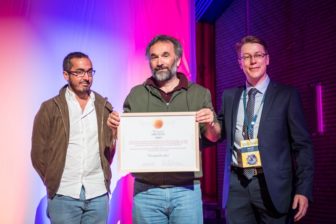
Team: Adi Eyal, Adriaan Basson, Angelique Serrao, Antoinette Muller, Branislav “Branko” Brkic, Craig McKune, Lester Freamon (pen name), Lionel Faull, Marianne Thamm, Micah Reddy, Pauli van Wyk, Pieter-Louis Myburgh, Rebecca Davis, Richard Poplak, Sally Evans, Stefaans Brümmer, Stephen “Sam” Sole, Susan Comrie, Tabelo Timse. (Daily Maverick (Scorpio investigative unit), amaBhungane Centre for Investigative Journalism, News24, OpenUp, and Finance Uncovered, South Africa)
This collaborative investigation was based on a massive cache of emails from inside the business empire of the Gupta family, three brothers who moved to South Africa from India in the 1990s. Close to former President Jacob Zuma — who stepped down not long after the leaks were published — the series showed how the family “captured” the South African state, siphoning public cash to their companies in the process.
Large Outlets (Citation of Excellence)
The Azerbaijani Laundromat
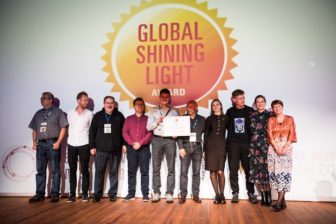
Team: Ilgar Agha, Roman Anin, Anna Babinec, Sophie Balay, Attila Biro, Jan Bratanic, Anuška Delić, Ricardo Ginés, Pavla Holcová, Khadija Ismayilova, Elena Loginova, Miranda Patrucić, Madina Mammadova, Paul Radu, Atanas Tchobanov, Jonny Wrate, Carole Kerbage, Dragana Peco, Nadia Shiyyab, Friedrich Lindenberg, Amy Guy, Lion Summerbell, Ilya Lozovsky, Jody McPhillips, Drew Sullivan, Birgit Brauer, Lejla Čamdžić, Roxana Jipa, Ana Poenariu, undisclosed Azerbaijani journalists. (Organized Crime and Corruption Reporting Project (OCCRP) in collaboration with numerous international outlets, Azerbaijan)
This collaborative, cross-border investigation uncovered how ruling elites in Azerbaijan benefited from a complex money-laundering operation and slush fund. Banking records revealed that some $2.9 billion passed through four shell companies registered in the United Kingdom over a two-year period.
Small/Medium Outlets (Winner)
“Car Wash” (Lava Jato) and “White Collars” (Lava Juez)
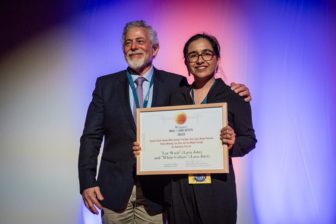
Team:For the “Car Wash” series: Gustavo Gorriti, Romina Mella, Hernán P. Floríndez, Rosa Laura, Margot Desautez. For “White Collars” series: Gustavo Gorriti, Romina Mella, Hernán P. Floríndez, Rosa Laura, Margot Desautez, Patricia Mayorga, Cruz Silva, Luis Miguel Purizaga. (IDL-Reporteros, Peru)
Peru’s IDL-Reporteros was one of the first media outlets to report on the bribes of Brazilian construction company Odebrecht and its complex corruption network — dubbed by prosecutors as “Operation Lava Jato” (Operation Car Wash in Portuguese) — that reached many other countries in Latin America, implicating presidents and other top government officials and politicians. As IDL-Reporteros doggedly continued reporting the case, their journalists uncovered another major story: corruption at the highest levels of Peru’s courts. Their “White Collars” series has prompted the state to make structural reforms to the justice system.
Small/Medium Outlets (Citation of Excellence)

The Profiteers
Team: John-Allan Namu, Elijah Kanyi, Samuel Munia. (Africa Uncensored, Kenya)
This three-part documentary shines a light on how certain members of South Sudan’s elite have profited from the civil war and plundered their nation, all the while investing in Kenya and other East African countries. The investigation shows how these individuals move funds and obtain weapons with support from government and military officials, business people, and financial institutions in neighboring countries.
More information about the 2019 finalists here + video for small/medium outlets and large outlets.
2017 (Joint winners)
Inside the Massive Extrajudicial Killings in Nigeria’s South-East and How the Onitsha Massacre of Pro-Biafra Supporters was Coordinated
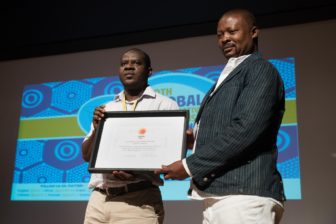
Journalist: Emmanuel Mayah; Editor: Musikilu Mojeed. (Premium Times, Nigeria)
A two-month long investigation by Mayah uncovered multiple mass graves, lending support to allegations that police and military forces have been targeting a minority ethnic group for abuse and extrajudicial killings. Following reports that included photo evidence, human rights groups called for an independent probe and the army announced another investigation.
Project No. 1
Journalist: Asaad Al-Zalzali; Photography: Thaer Khalid (Beladi TV channel, Iraq)
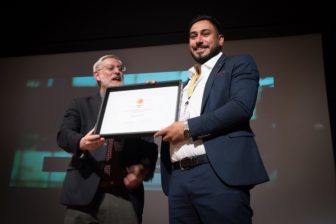
When $200 million allocated for public schools in Iraq went missing, reporter Al-Zalzali followed the money, which led him to a bank and to another country. The story exposed the magnitude of corruption in the country’s Ministry of Education and led to a conviction and a settlement that returned half the stolen money.
Citation of Excellence
Making a Killing
Reporters: Lawrence Marzouk, Ivan Angelovski and Miranda Patrucic; Additional reporting: Atanas Tchobanov, Dusica Tomovic, Jelena Cosic, Jelena Svircic, Lindita Cela, RISE Moldova, Pavla Holcova, Stevan Dojcinovic and Pavle Petrovic; Editors: Drew Sullivan, Jody McPhillips, Rosemary Armao, Gordana Igric and Anita Rice (Balkan Investigative Reporting Network and the Organized Crime and Corruption Reporting Project)
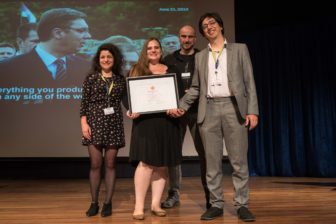
The joint investigation uncovered an arms pipeline between Central and Eastern Europe and the Middle East worth €1.2 billion. The weapons flow, reporters found, were being financed by Saudi Arabia, Jordan, the UAE and Turkey, and systematically diverted to extremist groups, including the Islamic State.
After the story was published, the European Union announced it would monitor the flow of weapons and several countries reviewed their policies.
Citation of Excellence
Gujarat Files: Anatomy of a Coverup
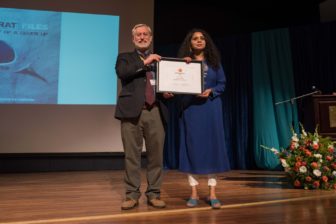
Journalist: Rana Ayyub (self-published)
Reporter Rana Ayyub went undercover for nine months to record top officials speaking candidly about the 2002 riots in Gujarat, which left at least 1000 Muslims dead. When one of the targets of Ayyub’s investigation was poised to become the country’s new prime minister, Indian media houses got cold feet. Despite threats and surveillance, Ayyub self-published the transcripts that revealed complicity by India’s top officials in the attacks.
More information about the 2017 finalists here and video here.
2015 (Joint winners)
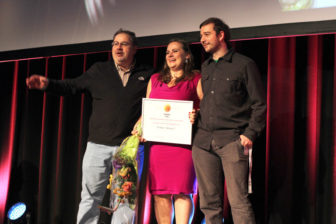
Unholy Alliances
Journalists: Miranda Patrucic; Dejan Milovac; Stevan Dojcinovic; Lejla Camdzic, Drew Sullivan, Jody McPhillips, Rosemary Armao (Organized Crime and Corruption Reporting Project)
This year-long investigation exposed how Montenegro’s once-untouchable Prime Minister Milo Djukanovic and his family bank are at the center of an unholy alliance of government, organized crime, and business. Far from a model candidate for the EU, Montenegro in effect functions as a mafia state.
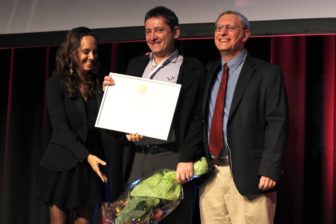
Empire of Ashes
Journalists: Mauri König with Albari Rosa and Diego Antonelli (Brazil); Martha Soto (Colombia); and Ronny Rojas (Costa Rica), Gazeta do Povo, Brazil
A five-month investigation revealed how cigarette smuggling is overtaking marijuana and cocaine as the most profitable racket in parts of Latin America. The illicit trade is reshaping the geopolitics of organized crime in South America, and is covertly led by Paraguay President, Horacio Cartes.
Citation of excellence
Yanukovych Leaks
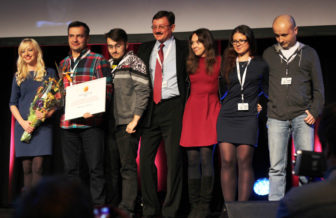
Journalists: Dmytro Gnap; Anna Babinets; Vlad Lavrov; Oleksandr Akimenko; Katya Gorchinskaya; Natalie Sedletska; Oleg Khomenok; Mariya Zemlyanska; Olesya Ivanova; Maksym Opanasenko; Kateryna Kapliuk; Denys Bigus.
In the chaotic days of Ukraine’s 2014 revolution, an impromptu team of journalists banded together to rescue 25,000 documents nearly destroyed by the country’s fleeing president. Their work documented an extraordinary history of corruption and became evidence in criminal cases against Yanukovych and his cronies for stealing millions of dollars.
More information about the 2015 finalists here and video here.
2013*
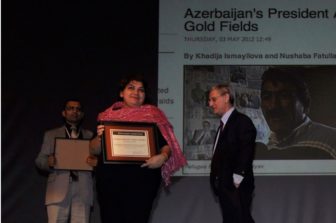
Azerbaijan Corruption
Journalists: Khadija Ismayilova, Nushabe Fatullayeva, Pavla Holcova, and Jaromir Hason in a collaboration by the Organized Crime and Corruption Reporting Project, Radio Free Europe, and the Czech Center for Investigative Journalism
The story laid bare the questionable business dealings of president Ilham Aliyev’s family, who stood to add billions of dollars to their already enormous wealth through a gold mining operation. The team exposed how the family used a consortium of one UK and three offshore companies as a front for their business dealings.
Citation of excellence
Taxation without Representation
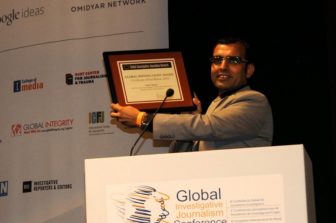
Journalists: Umar Cheema, Center for Investigative Reporting in Pakistan
Cheema obtained and analyzed tax records of all 446 members of Pakistan’s parliament and the president. His investigation revealed that nearly 70 percent of lawmakers failed to file tax returns. The story caused huge controversy and debate in Pakistan, a country that suffers from one of the world’s lowest rates of revenue collection.
More information about the 2013 finalists here and video here.
2011
Secret Diaries
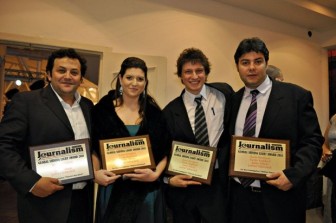
Journalists: James Alberti, Katia Brembatti, Karlos Kohlbach, and Gabriel Tabatcheik, Gazeta do Povo and PRC Television, Brazil
The reporters spent two years building a database to reveal how the Parana state legislative assembly systematically pilfered as much as $400 million in public funds. The 2010 series drew 30,000 people to the streets in anti-corruption protests and resulted in more than 20 criminal investigations.
2010
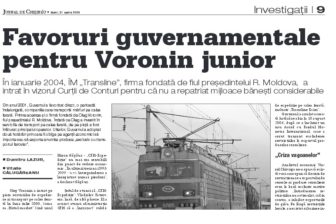
Investigating the Economic Structure Behind the Moldovan Regime
Journalists: Vitalie Calugareanu (Moldova), Vlad Lavrov (Ukraine), Stefan Candea (Romania), Dumitru Lazur (Moldova), and Irina Codrean (Moldova)
The journalists worked together to expose how the former president of Moldova abused his power to enrich himself and his family. They obtained information on Voronin’s private properties from 1996-2009 and showed how he used his position to create monopolies for his family businesses.
2008
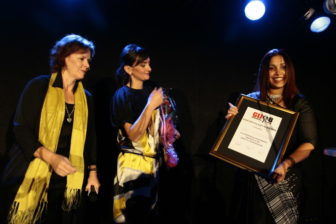
Gangsterism and the Faulty Legal System
Journalist: Sonali Samarasinghe (Sri Lanka)
Sonali Samarasinghe exposed how a powerful government minister used his influence and connections to the prime minister to run roughshod over the media and the justice system. Samarasinghe was later forced to flee the country after her husband was murdered and her own life was threatened.
2007
Power Brokers
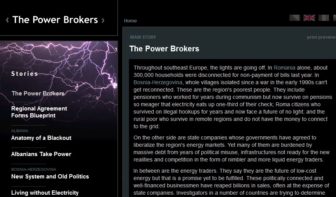
Journalists: Paul Christian Radu and Sorin Ozon, Romania Centre for Investigative Journalism; Eldina Pleho and Alison Knezevic, Centre for Investigative Reporting in Bosnia; Stanimir Vlaglenov (Bulgaria), and Altin Raxhimi (Albania).
The project investigated an energy crisis that caused massive power outages across Romania, Bosnia, Bulgaria, and Albania. The series exposed questionable deals by shadowy businessmen operating across the Balkans that returned huge profits to power traders but resulted in exorbitant electricity rates applied to impoverished citizens.
*NOTE: The 2013 Global Shining Light Awards originally had two winners. Due to reporting errors and other problems in Cato Manor: Inside a South African Police Death Squad, the Sunday Times of South Africa in 2018 disavowed the work and returned all awards given to the team behind the story. In response, GIJN has removed Cato Manor as a Global Shining Light Award winner.

